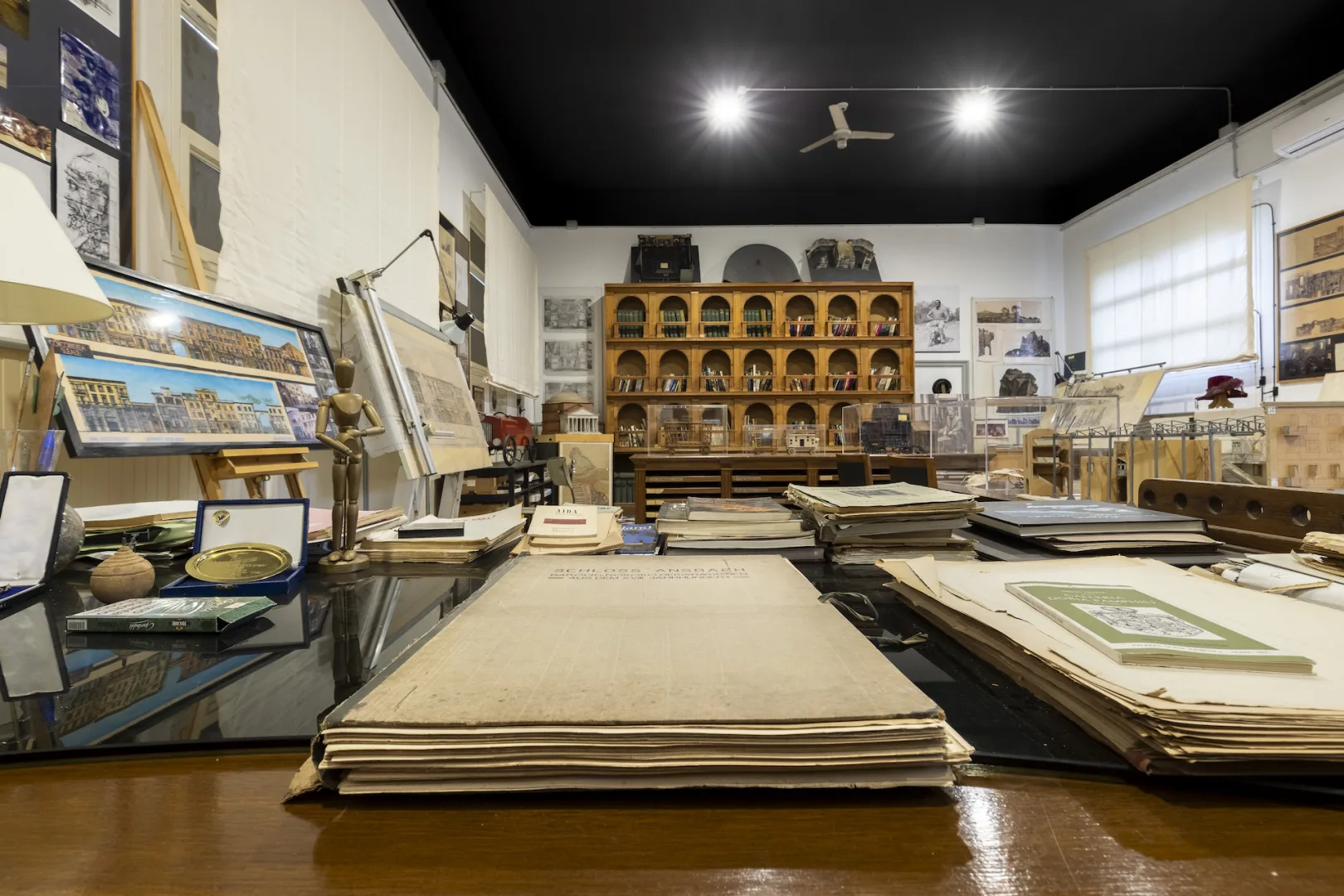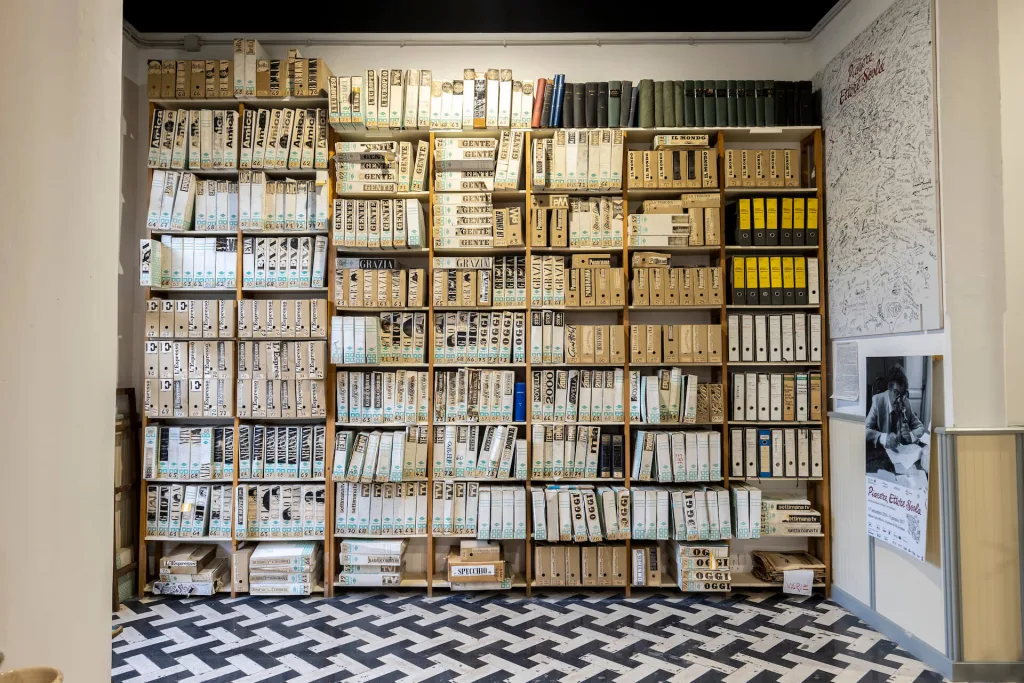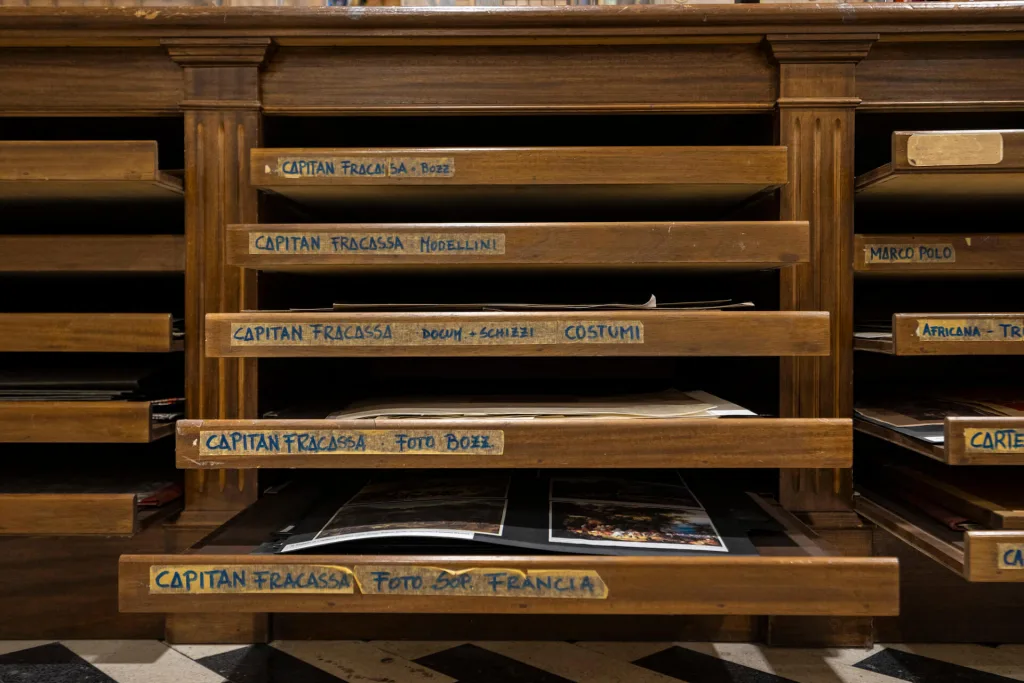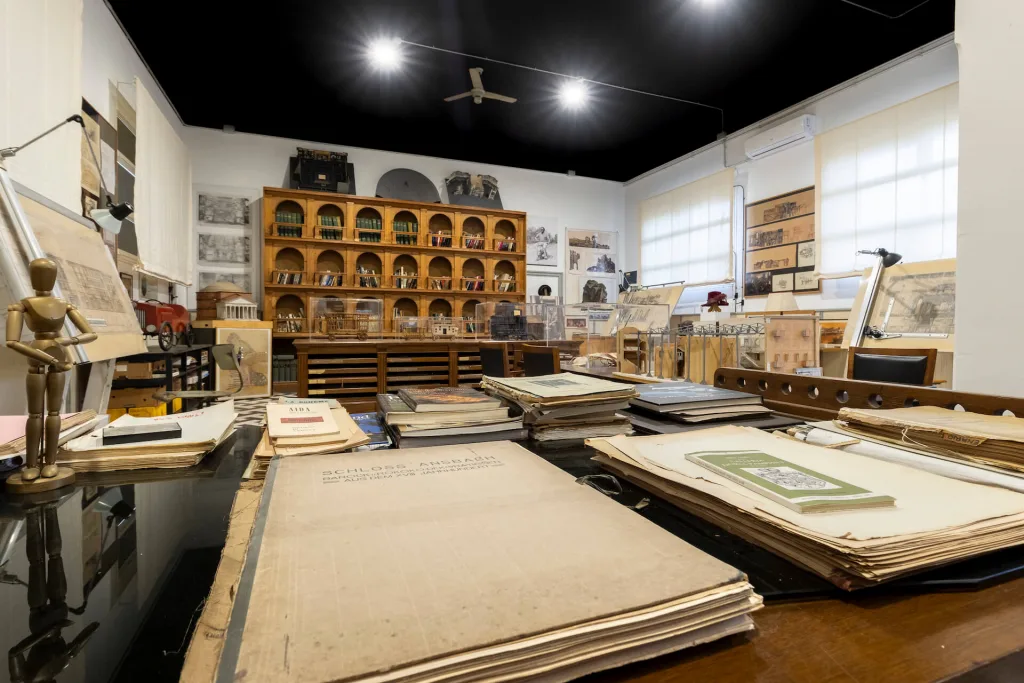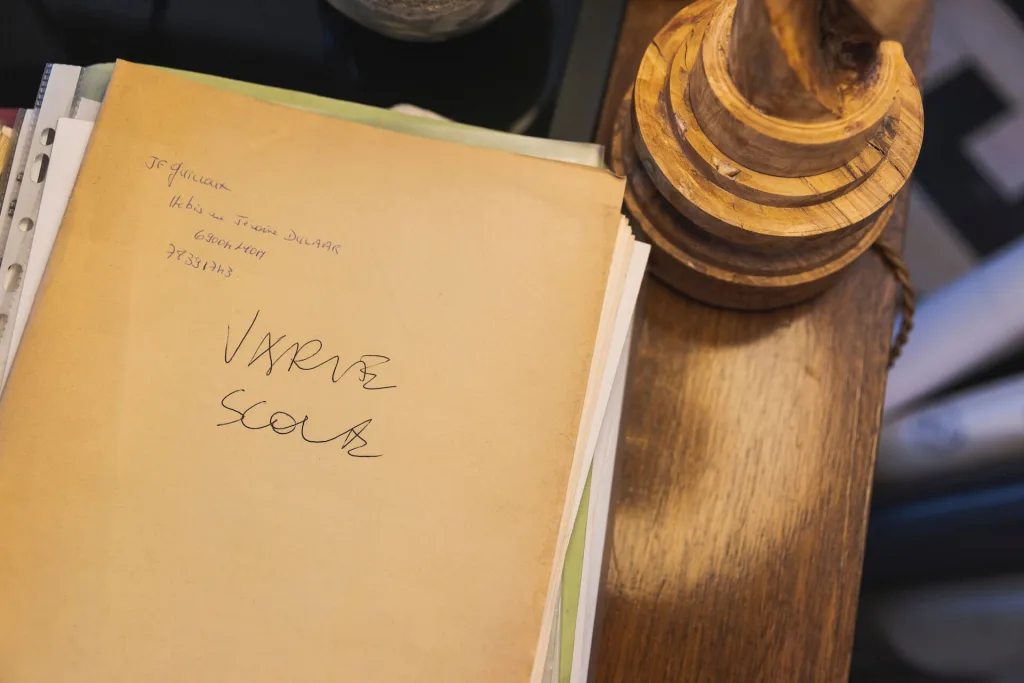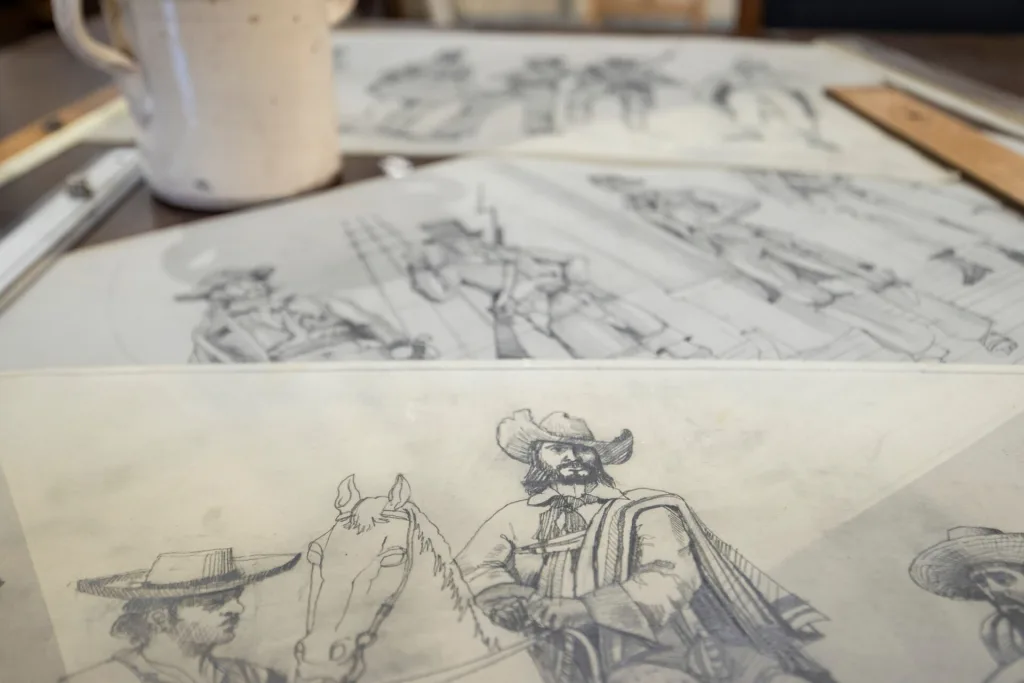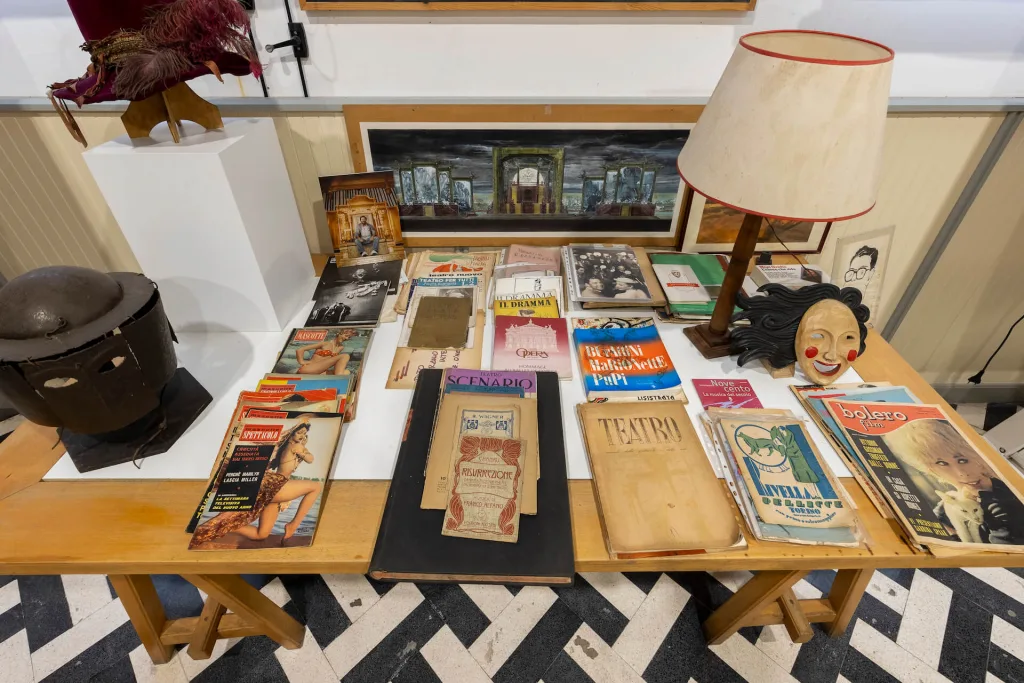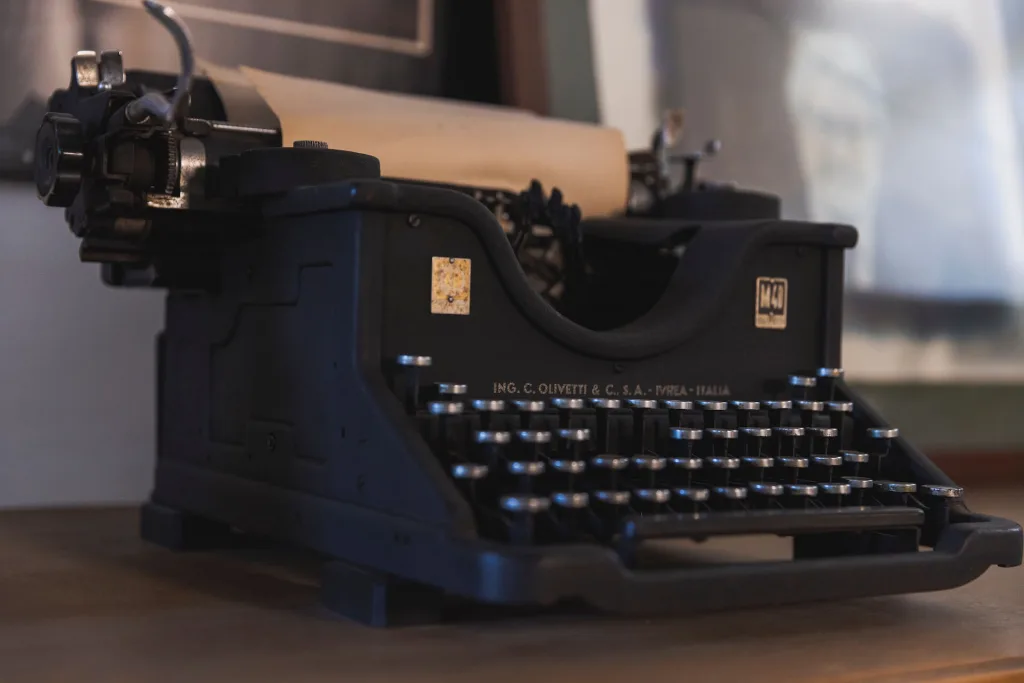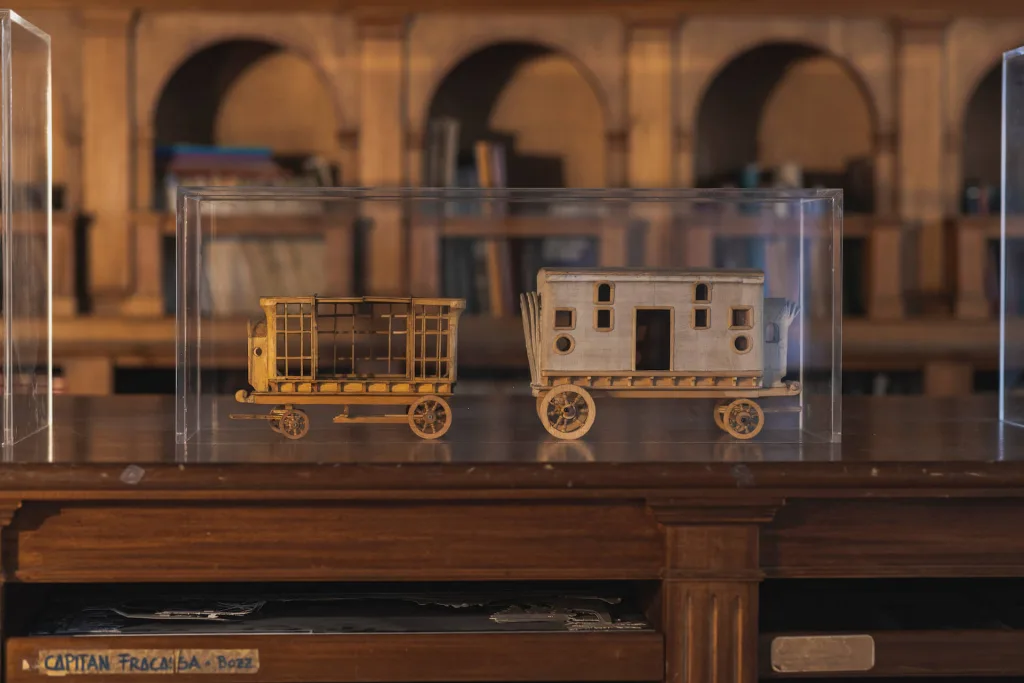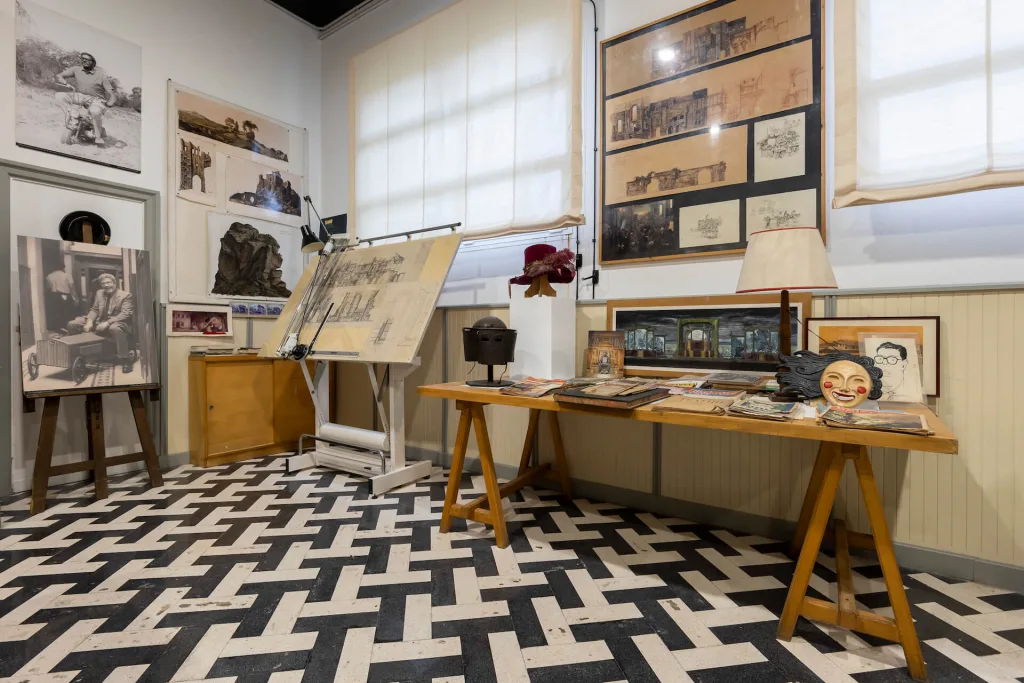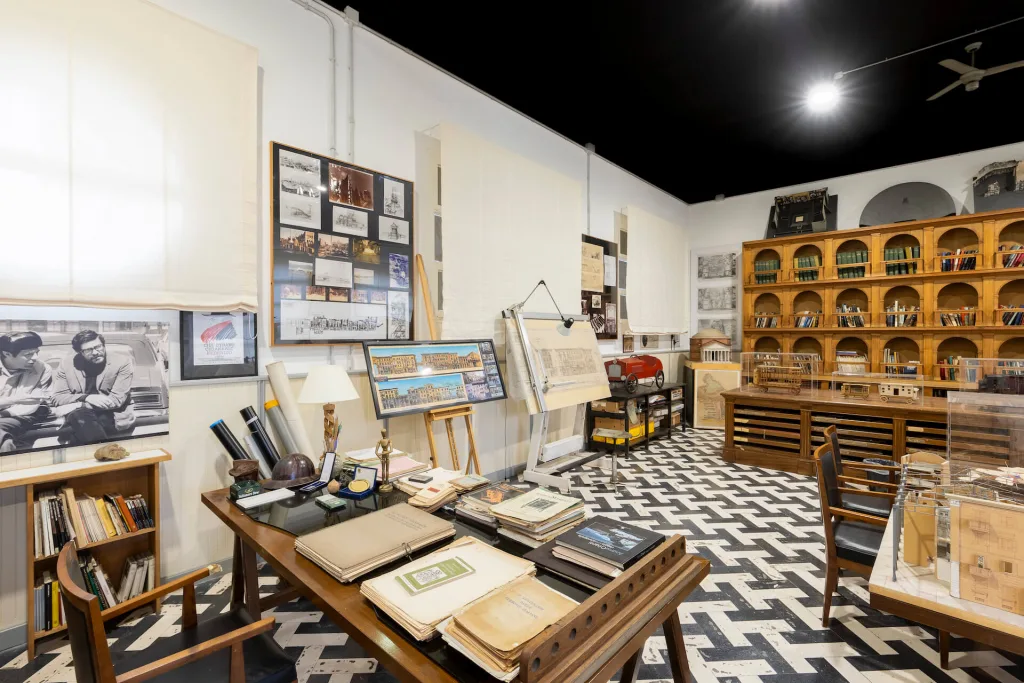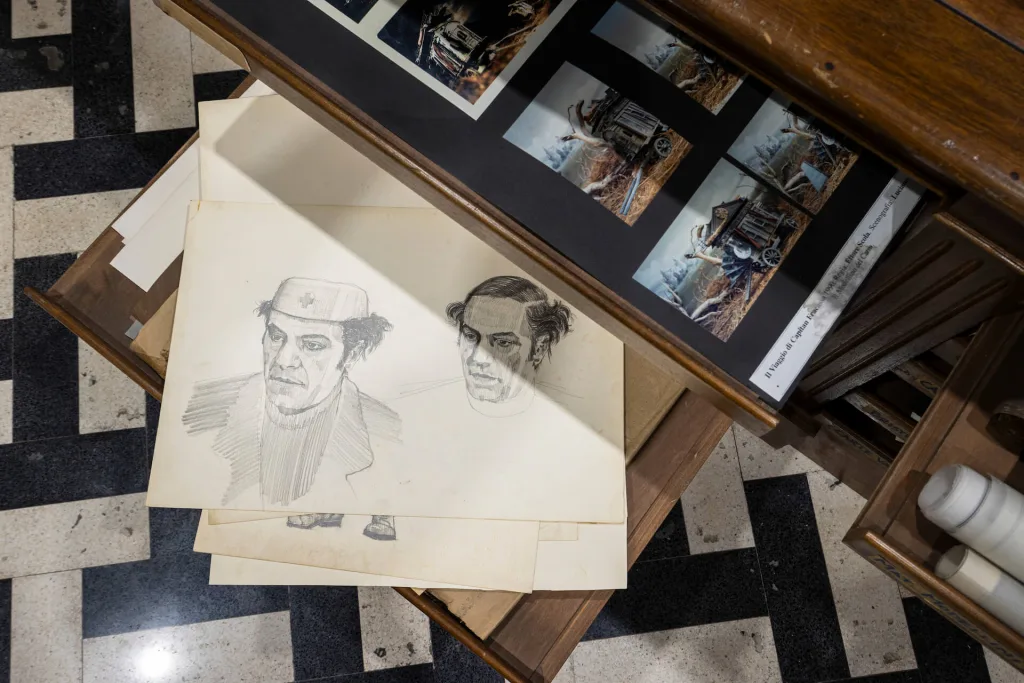Studio EL, which takes its name from its founders’ initials, E for Ettore (Scola) and L for Luciano (Ricceri), was established in the Eighties at Cinecittà with the partnership formed by two cinema greats: the director Ettore Scola, who depicted the peoples of Italy and the social history of the country for over 50 years (his debut directorial work was in 1964 with the film Let’s Talk About Women, written with Maccari) and Luciano Ricceri, one of the country’s greatest set designers whose long career included work for cinema, television and theatre.
The workshop is a testament to their long partnership which began in 1966 with The Devil In Love and brought them to work together on unforgettable films like We All Loved Each Other So Much (1974); Ugly, Dirty and Bad (1976); A Special Day (1977); La terrazza (1980); The Family (1987); The Voyage of Captain Fracassa (1990); Concorrenza sleale (2001), through to How Strange to be Named Federico (2013), dedicated by Scola to his great friend Federico Fellini and shot specifically in Cinecittà’s Teatro 5 because of its special link with the maestro.
Studio EL was the birthplace for many of Scola and Ricceri’s memorable masterpieces, and also a place that fostered talent where many significant figures from the cinema industry, past and present, gravitated. As Ezio Di Monte, set designer, decorator and Scola’s long-time professional partner, recalls, the Studio was like a Renaissance workshop where the sets were designed, drawn by hand, ideas were exchanged and everyone worked together.
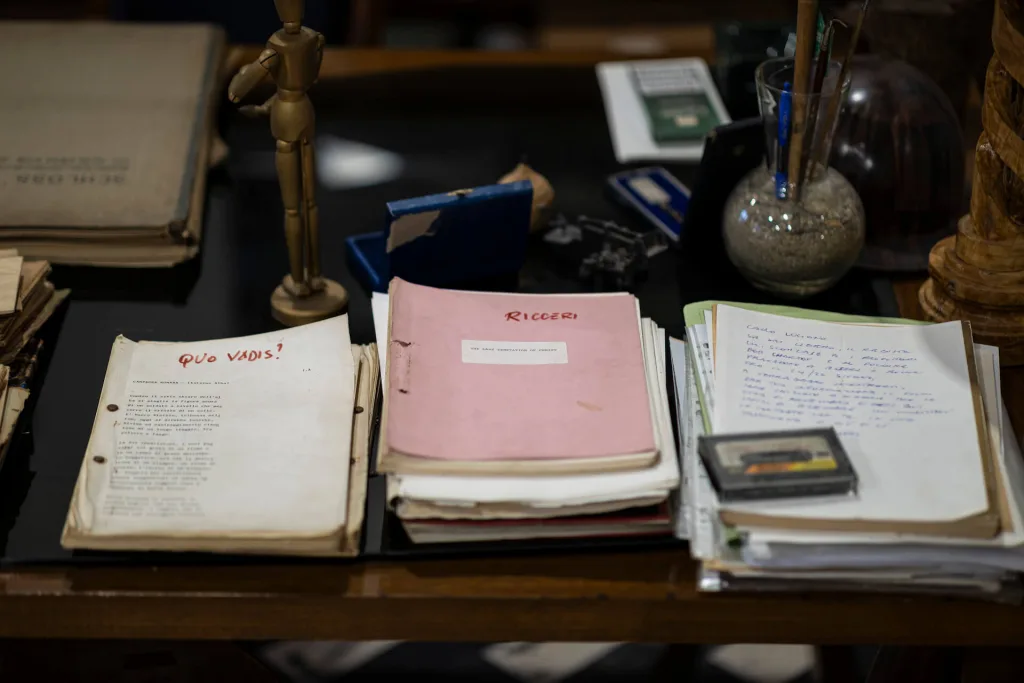
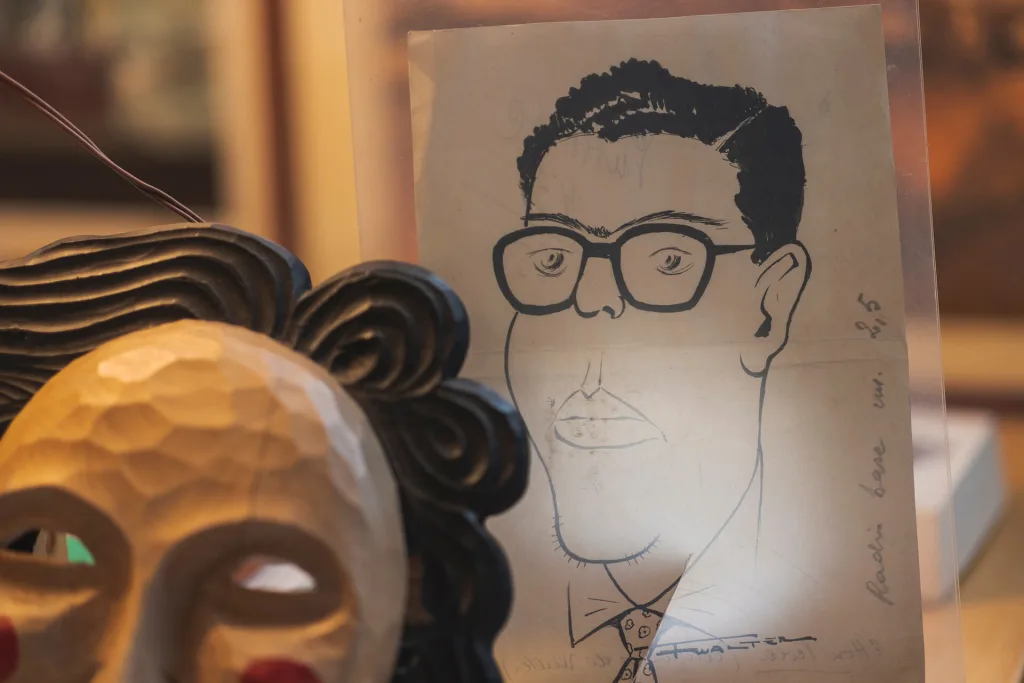
The workshop we see today, in the spaces which once hosted Cinecittà’s refectory, is just one part of the Studio which, at the time, stood alongside a carpentry shop and even had a kitchen where Scola, who loved cooking, liked to make lunch for his team. As Di Monte recalls, it was like a second home, where a big slice of Italy’s cinematic imagination was fostered.
‘’Studio EL – in Scola’s words – was a creative cinema ATELIER – STUDIO, WORKSHOP, LABORATORY”.
Some of these projects were brought to fruition by Scola who would act as intermediary between young filmmakers and producers.
Those of the younger generation who spent time at the Studio were Roberto Giannarelli, Fabrizio Giordani, Francesco Lazotti, Ricky Tognazzi, Daniele Costantini, Roger Guillot, and his daughters, Paola and Silvia.
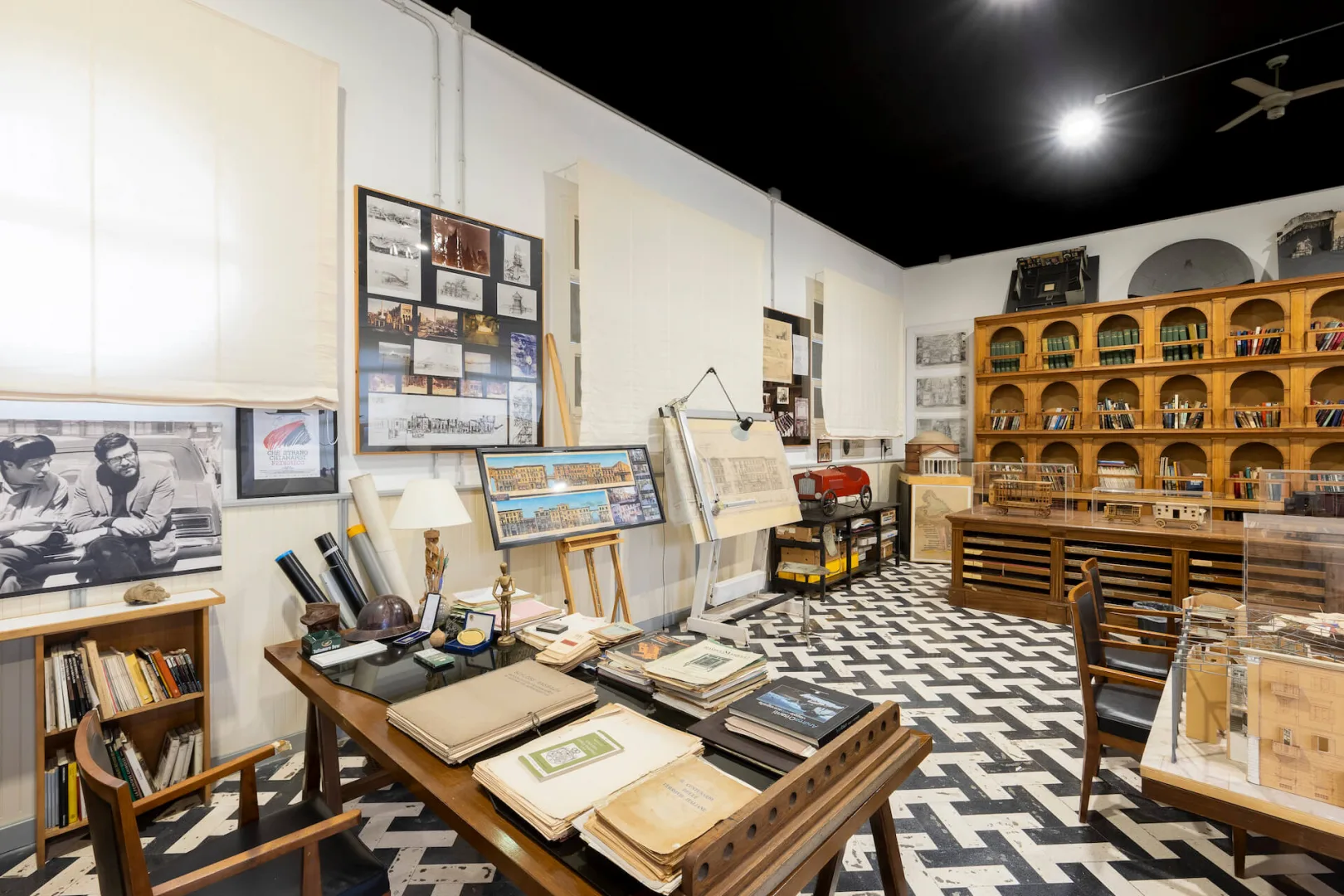
After Ettore Scola’s death in 2016, Ricceri continued to run the Studio for several years with the help of set designer Cinzia Lo Fazio, his assistant for over 2 decades, who today holds the historic memory of all the work created between these walls.
Cinecittà made the decision to acquire the Studio because of its historical and creative significance, as it bears witness to Italy’s cinema, and Cinecittà itself, and to safeguard the material conserved here while opening its doors to the public.
Every object here encapsulates an anecdote, a detail that is helpful in reconstructing Scola and Ricceri’s great oeuvre, the productions they worked on together and the hidden work behind the making of a film.
Studio EL has been left very much like the original: a studio, an artist’s workshop that displays set models, sketches and stage props for films, television and plays, amidst technical drawings and bookshelves stuffed with magazines and books.
Studio EL has gathered and displays set designs, drawings, models and props from films like Il viaggio di Capitan Fracassa, Concorrenza sleale, Splendor, La Famiglia, Atlantide, Quo Vadis, Marco Polo among others.
GUIDED TOURS
Studio EL is accessible only with a guide from the Educational Department on a pre-booked tour of discovery of the place where the long working partnership between director Ettore Scola and set designer Luciano Ricceri created many films. The guided tour offers the opportunity to see set sketches, models and original stage props that demonstrate the work that underpins the creation of a film and to discover anecdotes and background about the films that made Italy’s cinema history.
Scheduled guided tours
The Educational Department offers guided tours of Studio EL for individuals visiting Cinecittà. The scheduled dates can be found here.
Participation must be booked in advance by writing to didattica@cinecitta.it
Guided tours for groups
Group guided tours of Studio EL are available for groups of min. 10 and max. 20. people. Find out more here.
Group tours must be booked in advance by writing to didattica@cinecitta.it
